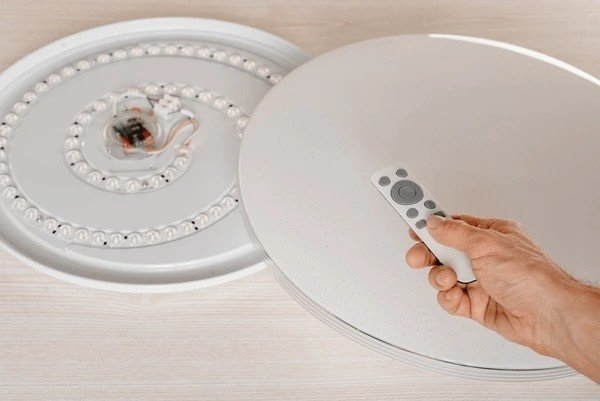Lighting your garden with solar-powered spotlights is one of the most eco-friendly and convenient ways to enhance your outdoor space. With advancements in technology, solar-powered garden spotlights now come with various features such as remote controls, adjustable brightness, and energy-efficient LED bulbs. If you’re like me and prefer minimal wiring and low energy consumption, these lights can be the perfect choice.
In this guide, I’ll take you through everything you need to know about solar-powered garden spotlights with remote controls, from the benefits to the different types available, and how to choose the best ones for your needs. I’ll also compare some of the most popular models, helping you make an informed decision when you’re ready to buy.
Table of Contents
Why Choose Solar-Powered Garden Spotlights?
Before diving into the best models, let’s quickly explore why solar-powered spotlights are a great choice for your garden.
1. Cost-Efficiency
Once you set up solar-powered lights, the cost of running them is virtually zero. The solar panel absorbs sunlight during the day, and the built-in battery stores energy to power the lights at night. You won’t have to worry about monthly electricity bills for your garden lighting.
2. Easy Installation
Installing solar-powered garden spotlights is straightforward. Most of these lights come with stakes, so you can easily place them in the ground without the need for wiring or drilling.
3. Eco-Friendly
Solar-powered lights harness the power of the sun, making them a sustainable lighting option. Using solar energy reduces your carbon footprint and supports a cleaner environment.
4. Low Maintenance
These lights require minimal maintenance. Solar lights are designed to withstand weather conditions and, once installed, will last for years with little care.
What to Look for in Solar-Powered Garden Spotlights with Remote Control?
1. Brightness
The brightness of the spotlight is an essential factor to consider. If you want the lights to illuminate a large area or highlight certain features in your garden, you’ll need spotlights with higher lumens. Lumens measure the total amount of visible light emitted, and higher lumens mean brighter lights.
2. Solar Panel Efficiency
A good-quality solar panel ensures that your lights charge quickly and last throughout the night. When choosing a spotlight, pay attention to the solar panel’s power output, usually indicated in watts (W).
3. Battery Life
The battery stores the energy collected by the solar panel during the day. A longer battery life means that your lights will shine brightly throughout the night, especially if you live in an area with limited sunlight during the day.
4. Remote Control Features
Many modern solar-powered garden lights come with remote controls, which allow you to adjust the brightness, change light modes, or turn the lights on and off from a distance. The range and functionality of the remote control vary between models, so look for one that meets your specific needs.
5. Weather Resistance
Since these lights will be placed outside, they need to be durable and able to withstand various weather conditions, such as rain, snow, or high winds. Look for spotlights with an IP rating of at least IP65 for waterproofing.
6. Design and Adjustability
Consider the design of the spotlights. Some models have adjustable heads, allowing you to direct the light to specific areas. Additionally, choose a design that complements the aesthetic of your garden.
Comparison Table of Top Solar-Powered Garden Spotlights with Remote Control
To make your decision easier, I’ve compiled a comparison table of the best solar-powered garden spotlights with remote control.
| Model | Lumens | Battery Life | Solar Panel Output | Remote Control Features | Waterproof Rating | Price Range |
|---|---|---|---|---|---|---|
| Aootek New Solar Lights | 2000 | 8-10 hours | 2W | Brightness adjustment, Auto/Manual Modes | IP65 | $$ |
| LEPOWER Solar Spotlight | 1000 | 6-8 hours | 1.5W | 3 adjustable brightness levels | IP65 | $$ |
| LITOM Solar Spotlight | 1500 | 8-12 hours | 2W | 3 lighting modes, 16 feet range | IP65 | $$$ |
| Gigalumi Solar Lights | 600 | 8-10 hours | 1W | Brightness control, Auto/Manual | IP65 | $$ |
| Sunforce Solar Spotlight | 2500 | 12+ hours | 3W | Adjustable brightness | IP66 | $$$$ |
1. Aootek New Solar Lights
Pros:
- High brightness (2000 lumens) for large areas.
- Auto mode adjusts brightness based on surrounding light.
- Easy to install and low maintenance.
Cons: - Remote control has limited functionality.
The Aootek New Solar Lights offer great performance for people who want reliable, high-lumen lights with decent battery life. The auto mode is an added bonus as it adjusts the brightness based on the ambient light levels.
2. LEPOWER Solar Spotlight
Pros:
- 3 brightness settings for different needs.
- Comes with an extended wire for more flexible placement of the solar panel. Cons:
- Slightly lower lumens compared to other models.
The LEPOWER model is an excellent choice if you prefer customizability in brightness levels and need a bit of flexibility in panel placement.
3. LITOM Solar Spotlight
Pros:
- Three lighting modes (warm, cool, and white light).
- Wide coverage area with adjustable heads. Cons:
- The remote control range could be better.
LITOM’s solar spotlight is perfect if you want to set different moods in your garden. It provides a wide range of light settings and is one of the best options for large gardens.
4. Gigalumi Solar Lights
Pros:
- Affordable yet effective lighting.
- Adjustable brightness settings with the remote. Cons:
- Lower lumens (600) means less brightness.
This model is a good choice for small gardens or areas where you don’t need extremely bright lights but still want energy-efficient lighting.
5. Sunforce Solar Spotlight
Pros:
- Very bright (2500 lumens) for large spaces.
- Long battery life (12+ hours) even on cloudy days.
- Sturdy, weather-resistant build. Cons:
- Higher price point.
The Sunforce model is the most expensive option in the list but offers top-tier performance for those who prioritize power and durability.
How to Install Solar-Powered Garden Spotlights
Installation is one of the best aspects of solar-powered lights. They are easy to set up, and you don’t need an expert to do it for you. Here’s a simple step-by-step guide:
- Choose the Location
Pick a spot where the solar panel will get plenty of sunlight during the day. Avoid placing it in shaded areas. The lights themselves can be placed in gardens, along paths, or to highlight specific features like trees or statues. - Insert the Stake
For most models, you simply need to push the stake into the ground. If your ground is too hard, you might need a hammer to gently tap it in. - Adjust the Solar Panel
Position the solar panel towards the sun, ensuring it is angled correctly for maximum sunlight exposure. You can adjust the angle of most panels. - Test the Lights
Once installed, turn the lights on and check if everything is working correctly. Use the remote control to adjust brightness or lighting mode if available.
Conclusion
Choosing the best solar-powered garden spotlights with remote control comes down to balancing brightness, battery life, ease of use, and design. Each model I’ve covered in this guide has its strengths, and your choice will depend on the size of your garden, the features you need, and your budget.
I hope this guide helps you make an informed decision and enhances the beauty of your outdoor space with eco-friendly and convenient lighting solutions. Happy gardening!





